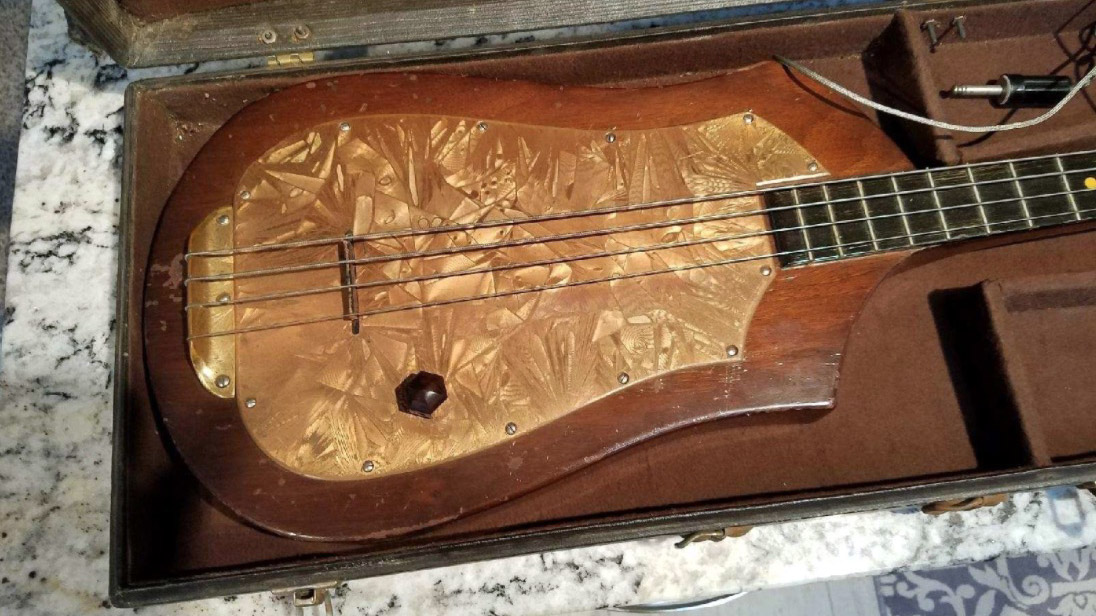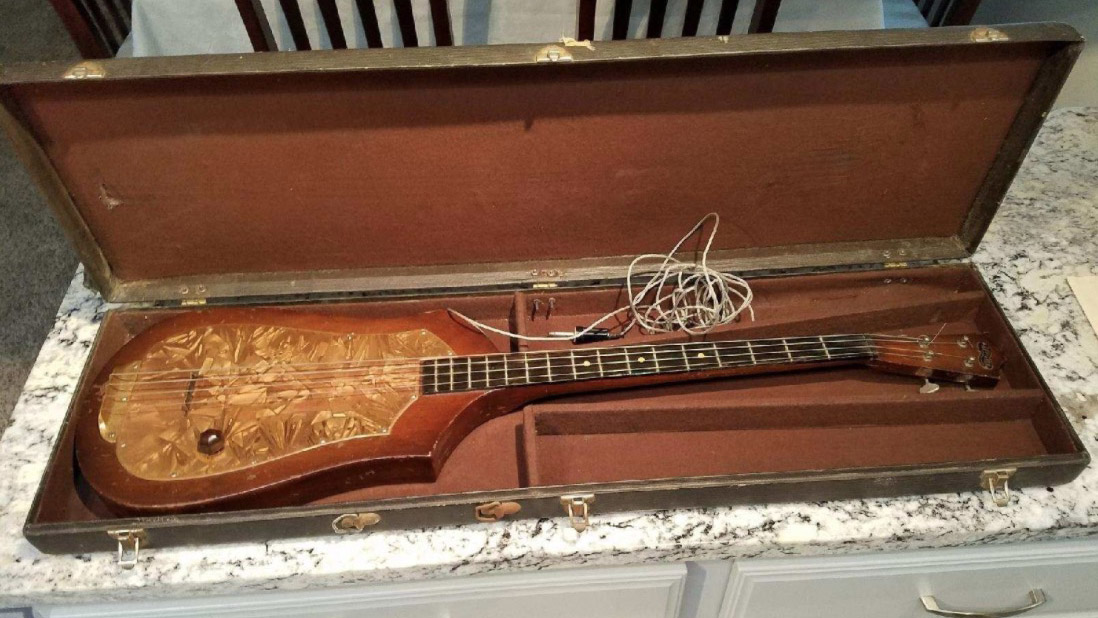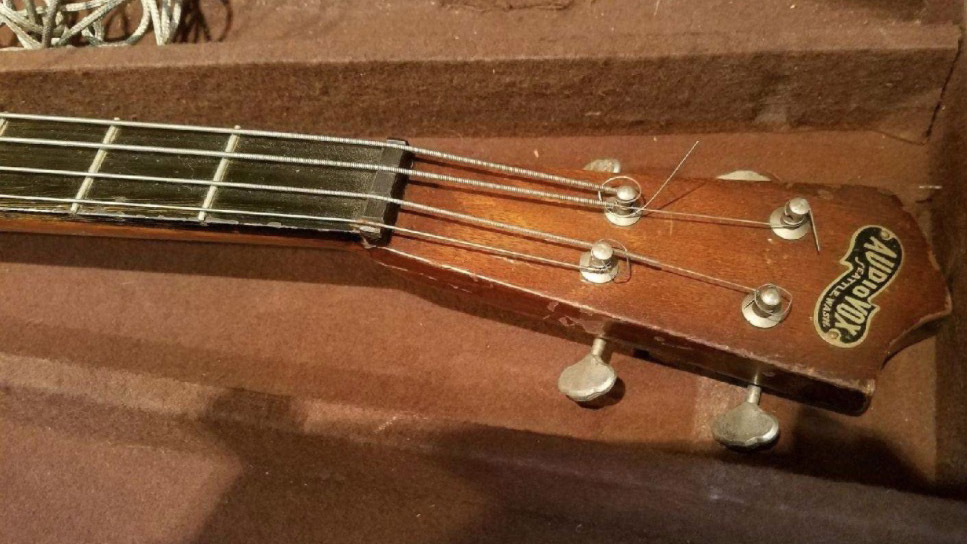The oldest electric bass guitar in the world just sold for $23k
Meet the Audiovox 736, built in 1936

The Audiovox 736, built in 1936, is said to be the oldest electric bass guitar in the world, and just sold on eBay for $23,850.
Built by Paul Tutmarc in Seattle, Washington, the 736 was introduced 15 years before the Fender P-Bass, which brought the electric bass mass appeal when it launched in 1951.
The bass for sale is apparently one of only three Audiovox 736 models in the world, and was listed for auction by Tutmarc’s grandson.


There are very few specs available, other than the body wood, which appears to be black walnut, and the bass features all original, working components.
Want all the hottest music and gear news, reviews, deals, features and more, direct to your inbox? Sign up here.


Mike has been Editor-in-Chief of GuitarWorld.com since 2019, and an offset fiend and recovering pedal addict for far longer. He has a master's degree in journalism from Cardiff University, and 15 years' experience writing and editing for guitar publications including MusicRadar, Total Guitar and Guitarist, as well as 20 years of recording and live experience in original and function bands. During his career, he has interviewed the likes of John Frusciante, Chris Cornell, Tom Morello, Matt Bellamy, Kirk Hammett, Jerry Cantrell, Joe Satriani, Tom DeLonge, Radiohead's Ed O'Brien, Polyphia, Tosin Abasi, Yvette Young and many more. His writing also appears in the The Cambridge Companion to the Electric Guitar. In his free time, you'll find him making progressive instrumental rock as Maebe.
